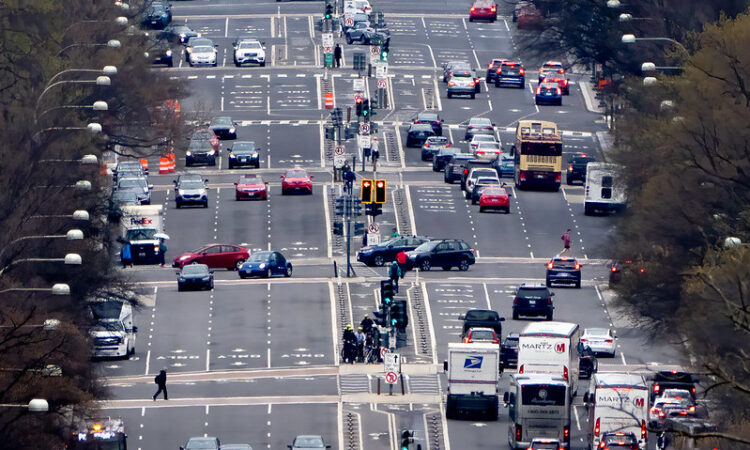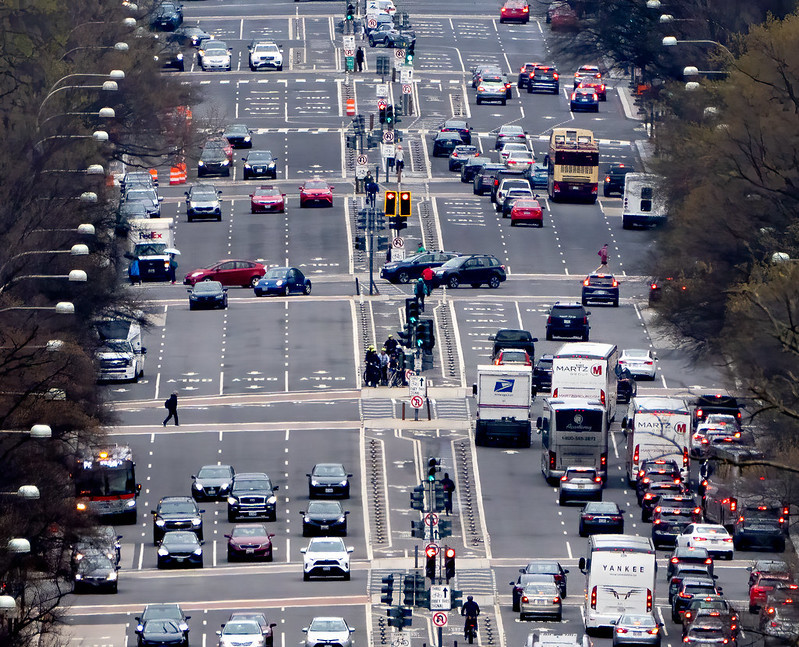Rise of SUVs hampered motor emission reductions from 2010 to 2022 – Greater Greater Washington


Rush hour on Pennsylvania Avenue by Victoria Pickering licensed under Creative Commons.
The proliferation of SUVs significantly hampered motor emission reductions in the last decade. Suggestions to build political consensus around policies that de-center car use in cities. How the 30-year mortgage creates a bifurcated market of “haves and have-nots.”
Motor emissions could have fallen more: A report by the Global Fuel Economy Initiative found that between 2010 and 2022, global auto emissions fell 4.2%. But if cars had not increased in size during that period, that number would have been more than 30%. SUVs are now 51% of the new car market and the increasing size of vehicles means more energy is needed to propel them. (Helena Horton | The Guardian)
Overcoming urban car dependence: In Europe and around the world, the fundamentals of good cities are incompatible with car orientation, mostly due to the large amount of space required to accommodate vehicles. Dr. Philipp Rode argues that the fights over transportation are also politically tricky, and shifting to a more city-centric transportation policy will hinge on perceptions of fairness by the wider public. When a policy can be framed by the opposition as “unfair,” it makes implementation much harder. (Philipp Rode | LSE Cities)
America’s weird mortgages: The 30-year mortgage isn’t standard around the world. It’s causing some of the problems in the current US housing market as people stay put to keep their interest rates low as prices continue to rise and supply remains short. The current system which allows owners to refinance their mortgage when rates are low benefits homeowners and creates demand for housing, but a similar stimulus on the supply side doesn’t exist, leaving a shortage. (This article is behind a paywall) (Ben Casselman | New York Times)
When London’s mayor took on cars: London Mayor Sadiq Khan came to the climate fight late, but after the death of nine-year-old Kissi-Debrah from asthma and his own bout with it, he’s pushed hard to reduce pollution from vehicles in the city. But the push for ultra-low emissions zones has also come with political backlash and fraying of political alliances. The world will be watching what happens in London and what it means for policies that promote cleaner air in cities around the world. (Karl Mathiesen | Politico EU)
Mayo Clinic unveils ‘health neighborhoods’ plan: The Mayo Clinic in Rochester, MN, is planning a $5 billion campus that creates “health neighborhoods” to link different types of services together so people aren’t traveling between multiple buildings for care. Now, instead of individual floors being created for services like testing and blood work or surgery, the areas would be flexible based on patient care needs. The program is also a part of Rochester’s 20-year medical center economic development plan, which features a new bus rapid transit line, new zoning rules, and commercial development. (Catharine Richert | MPR News)
Quote of the Week
“What we see is that folks oftentimes are very interested in the rural landscape, the rural aesthetic, and at the same time, we have fewer and fewer farmers.”
Cari Watkins-Bates, director of land conservation for Scenic Hudson in Fast Company discusses how the farmhouse craze is hurting actual farmers.
This week on the podcast we’re joined by Danielle Arigoni, managing director for Policy and Solutions at The National Housing Trust. We chat about Danielle’s new book “Climate Resilience for an Aging Nation”.






